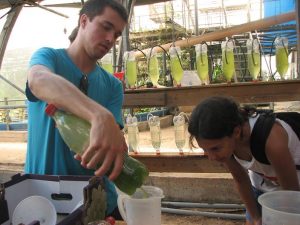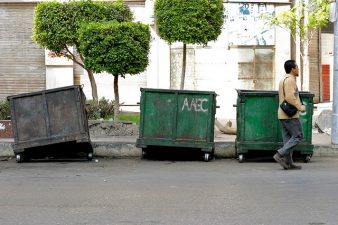 The EU has banned 10% of Egyptian agricultural products after linking that country to the devastating E. coli outbreak that killed 49 people earlier this year.
The EU has banned 10% of Egyptian agricultural products after linking that country to the devastating E. coli outbreak that killed 49 people earlier this year.
The European Union has linked the May/June E. coli outbreak that killed 49 people to produce grown in Egypt. Following a dedicated probe, officials concluded that a shipment of fenugreek seeds used to grow sprouts imported by a German company was the “most likely common link” to the outbreak.
Following this announcement, the EU has established an official ban on 10% of Egyptian agricultural products. The ban, which will be in place until 31 October, 2011, is the latest in a chain of economic woes that imperil Egypt’s smooth recovery – including a significant drop in tourism and the third explosion of a natural gas pipeline.
Homegrown food sold for export
The Media Line points out that during the E. coli outbreak in Europe earlier this year, the United Arab Emirates, Qatar, and Kuwait banned imports and the sale of cucumbers from Germany, Spain, Denmark, and the Netherlands, suspecting those countries of selling contaminated produce.
Instead, the produce was “home grown” in Egypt, where agricultural standards are relatively relaxed since most farmers produce food for a local, less demanding market.
Even so, since 2009 Egypt has been working to improve its standards in order to meet the demands of the European market and the Agriculture Export Council even boasted just one month before it was linked to the deadly E. coli outbreak that it was increasing its continental exports.
This is what Egypt stands to lose as a result of the ban, according to the Media Line:
The EU ban will cause a big dent in exports. In 2010, the EU says it imported from Egypt about 49,000 tons of the types of seeds affected by Tuesday’s decision valued at over 56 million Euros ($80 million). That’s about 11% of Egypt’s total. The impact, however, may be considerably bigger as European importers, distributors, and shoppers shun Egyptian products not covered by the ban.
Although it would be nice to think that this hard knock will encourage the authorities to develop higher standards, the reality is that the country is receiving hard financial knocks in every sector – from energy to tourism – and will battle to provide even the bare necessities for its citizens this year.
More on Agriculture in Egypt:
Egypt to Get 3% of Africa’s Slow Food Gardens
Climate Change Poses Threat To Egypt’s Farming, Tourism, and Water Supply
Egypt Could be on the Brink of Famine
image via Dan Zen




How convenient for the EU that their new ISO9001 food tracking system didn’t need to be put to the test and the food originated outside the EU.
A little odd isn’t it that an antibiotic resistant superbug originated in a country where it’s unlikely antibiotics are given to animals much, if at all…..